Online Classes in B.C. Help Students Remain Competitive

Using online classes to get ahead
This article speaks about the public education system in B.C., Canada and how online classes help manage the demand for teachers and class space.
The skills required to stay competitive in one career are constantly evolving. While new technologies make old methods slow and unpractical, public school systems across North America are stuck trying to fix a system built for a prior generation.
High school today appears to be more focused on getting through work rather than building skills. The workplace demands strong skills in written communication, time management, and technology while most school curriculums are geared towards careers in creative literature, administrative duties, or scientific research.
Teaching theory without experience is like teaching how to kayak without ever getting in the water – it’s just not enough to cement a theory into its useful application.
Despite knowing many of the changes in career-ready skills, the average North American school still emphasizes theory over application, and early wake-up times over teenager health.
Students need to be used to industry-standard software programs to be ready for their career. Without tangible projects that demonstrate experience in these programs, students struggle to obtain job interviews they otherwise may have landed.
So, if we demand more experience and technical skills in the workplace, then why are these factors not fundamental to the learning environment?
New ways of learning have been proposed, both in offline and online classes. A short search for “school” in the education section of Ted Talks will show a number of solutions that place experience above theory as early as kindergarten. In fact, many countries have adapted their K-12 education curriculum to address these changing demands. Yet still, the procedures used in university and outside of school is not aligned with the way we learn in high school.
Online submission procedures, time management tools, and 1-on-1 instructor time prepare students for university
Simply by using a laptop to complete and hand-in assignments online, students at iLearn are exposed to the same or similar procedures in post-secondary. An online curriculum with openly available teacher office hours help students build familiarity with online procedures and foster confidence when asking for assistance from teachers or admin staff. This leads to another important point – learning when it’s best to learn.
Students learn when they want to learn
If you have ever been pushed to learn something when you are not in the right mindset, you will know that learning takes more than a physical presence. By allowing students at iLearn to take online courses at their own pace, the stresses can be controlled and students can gain confidence learning independently and managing their own schedule. In doing this, students discover organizational techniques that are helpful in many settings, especially university.
Students can “Google” the answer
Instead of discouraging using tech tools in the classroom, iLearn encourages students to use technology. By providing real-world relevance to problems, students can learn that using their devices to help with a problem is encouraged as long as the devices are used to supplement the learning process, and not replace it.
With new tools and technologies entering the classroom it’s no surprise that students feel they can rely on their phones to answer all life’s questions. With this in mind, teaching students that technology is a shortcut is backwards as we evolve everyday into connected smartphone users. We should teach how to use technology in the classroom rather than fight to take it out entirely.
Online classes are the future
Humans learned very differently thousands of years ago. If we still taught our children how to hunt and fish with sharp sticks, we would not be preparing them well for life in a metropolis city. Fast-forward to the rise of technology, and our school teachers are still instructing students to handwrite notes, avoid using helpful technologies, and to attend class while half-asleep to avoid consequences for being late or absent. This is foolish when we know it only leads to poor performance.
Students need sleep to learn effectively; students need laptops to build typing skills; most students need to be exposed to industry-standard technologies to apply to relevant jobs; students need to learn when it’s most optimal for their biological clock; and most importantly, students need to learn theory while also building real-life experiences that puts theory into practice. If we fail to address these changing workplace demands in high school, we are not preparing our youth for success, but for another generation of baby boomers.
Using an online curriculum and catering assignments to each individual allows students at iLearn to take education into their own hands long before starting university or a career. If you or someone you know in a B.C. school could benefit from the individuality or freedoms felt at iLearn, have them check their eligibility to find out how iLearn can help.

